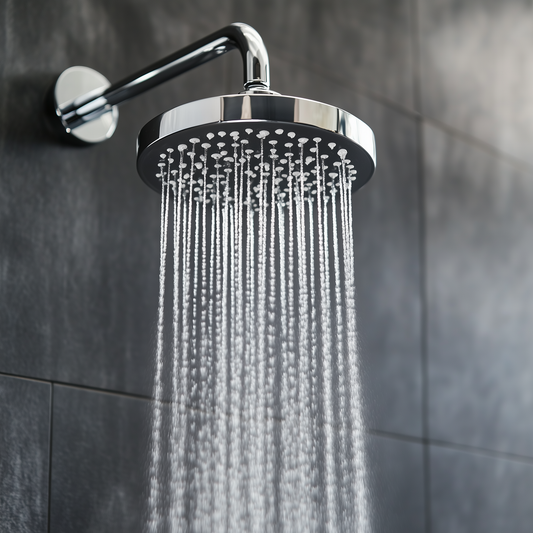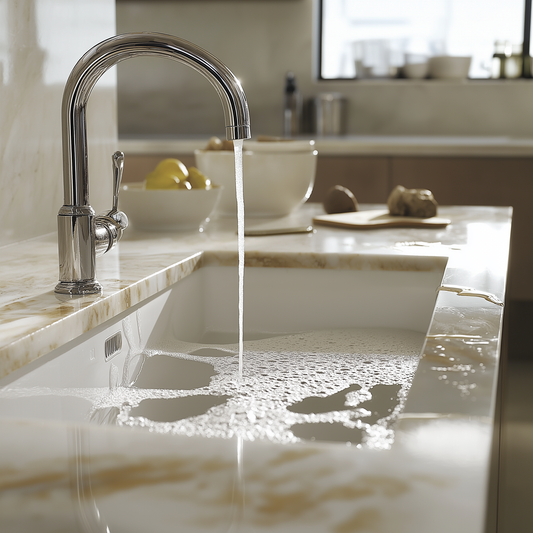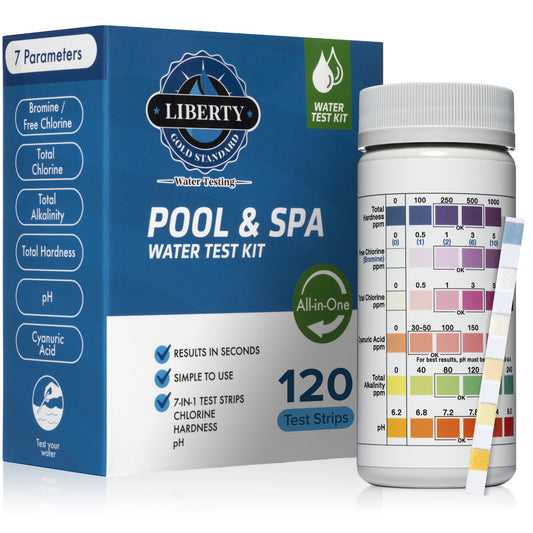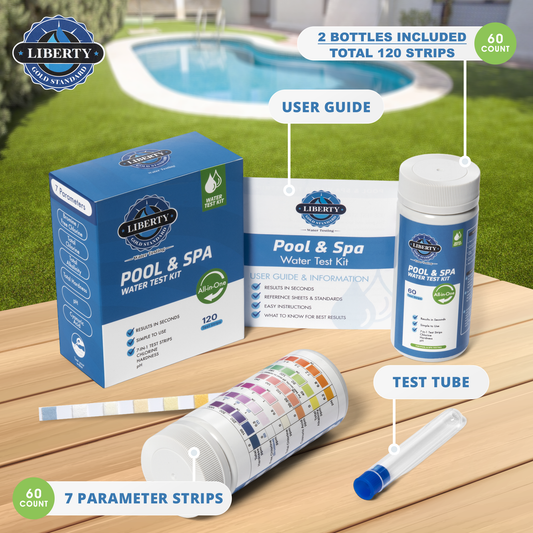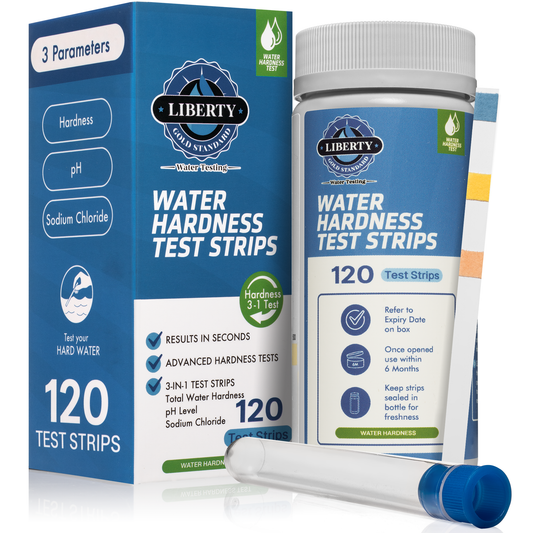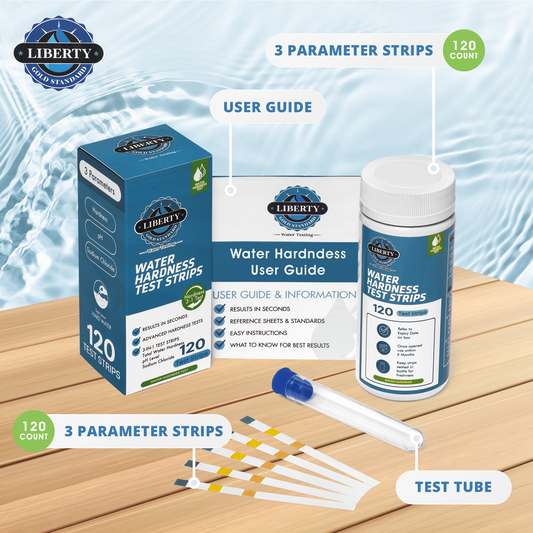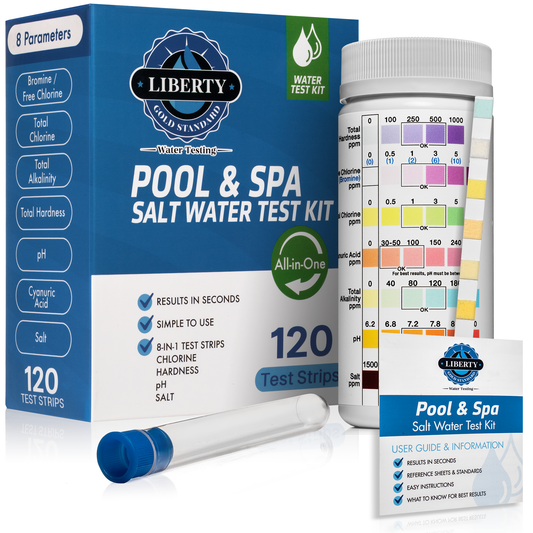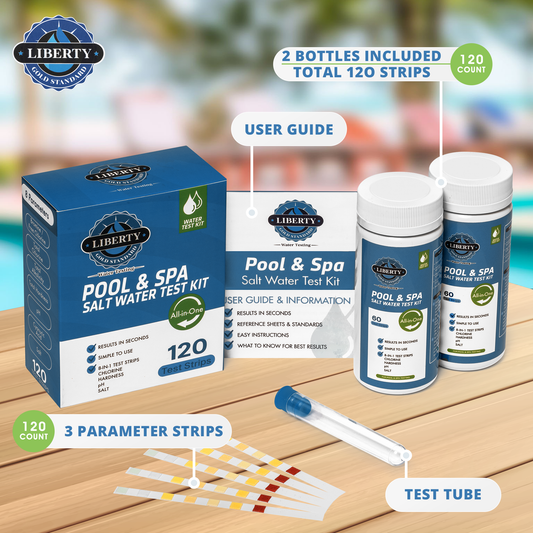When it comes to maintaining the balance of your pool or spa water, total alkalinity is a crucial factor to consider. Total alkalinity refers to the ability of the water to resist changes in pH, which is essential for keeping the water safe and comfortable for swimmers. In this article, we will explore the importance of testing for total alkalinity and why it should be a part of your regular pool maintenance routine.
What is Total Alkalinity?
Total alkalinity is a measure of the water's ability to neutralize acids without significant changes in pH. It acts as a buffer, helping to stabilize the pH level of the water. Low total alkalinity can result in rapid pH fluctuations, leading to corrosive water that can damage pool equipment and irritate swimmers' skin and eyes. On the other hand, high total alkalinity can cause cloudy water and scale formation on pool surfaces.
Why Test for Total Alkalinity?
Testing for total alkalinity is essential for maintaining balanced pool water. By keeping total alkalinity within the recommended range (typically between 80-120 ppm), you can prevent pH fluctuations and ensure that your pool water remains safe and comfortable. Regular testing allows you to make adjustments to the alkalinity levels as needed, helping to avoid costly repairs and keep your pool in optimal condition.
How does the Liberty Gold Standard Pool and Spa Water Testing Kit Help?
With the All-in-One pool and spa water testing kit, you can easily measure the Total Alkalinity levels in your water. The kit provides accurate and reliable results, allowing you to make informed decisions about the necessary adjustments to maintain the ideal Total Alkalinity range. This same kit will also test 7 other important parameters to help keep your pool and spa in good shape.
Benefits of Optimizing Total Alkalinity
By optimizing Total Alkalinity in your pool or spa, you can enjoy a range of benefits, including:
- Preventing pH fluctuations
- Enhancing water clarity
- Improving overall water quality
- Extending the life of pool equipment
With the All-in-One pool and spa water testing kit, achieving and maintaining the perfect Total Alkalinity levels has never been easier. Take the guesswork out of pool maintenance and ensure a safe and enjoyable swimming experience for all.

When Alkalinity Levels are too high
Having high total alkalinity levels in your pool can lead to various issues such as cloudy water, scaling, and difficulty in maintaining the proper pH levels. If you find that your total alkalinity levels are too high, here are some steps you can take to lower them to an acceptable range.
1. Test the Water
Before making any adjustments, it's essential to test the total alkalinity levels in your pool using a Liberty Gold Standard water testing kit. This will give you an accurate reading of the current levels and help you determine how much you need to lower them.
2. Add Acid
To lower total alkalinity levels, you can add muriatic acid or sodium bisulfate to your pool. Follow the manufacturer's instructions for the proper dosage based on your pool size and current alkalinity levels. Be sure to add the acid slowly and in small increments to avoid drastic changes.
3. Circulate the Water
After adding the acid, run your pool pump and filter system to circulate the water thoroughly. This will help distribute the acid evenly throughout the pool and prevent localized areas of low pH.
4. Retest and Repeat if Necessary
After a few hours, retest the total alkalinity levels in your pool to see if they have reached the desired range. If the levels are still too high, you may need to repeat the process of adding acid and circulating the water until you achieve the optimal total alkalinity levels.
5. Monitor and Maintain
Once you have successfully lowered the total alkalinity levels in your pool, it's essential to monitor them regularly to ensure they stay within the acceptable range. Regular testing and maintenance will help prevent future issues and keep your pool water balanced and clear.
By following these steps and taking the necessary precautions, you can effectively lower high total alkalinity levels in your pool and maintain a healthy swimming environment for you and your family.
The Bottom Line
Testing for total alkalinity is a critical aspect of pool maintenance that should not be overlooked. By monitoring and adjusting total alkalinity levels, you can ensure that your pool water remains balanced, safe, and enjoyable for swimmers. Make total alkalinity testing a regular part of your pool maintenance routine to avoid potential issues and keep your pool in top condition.




